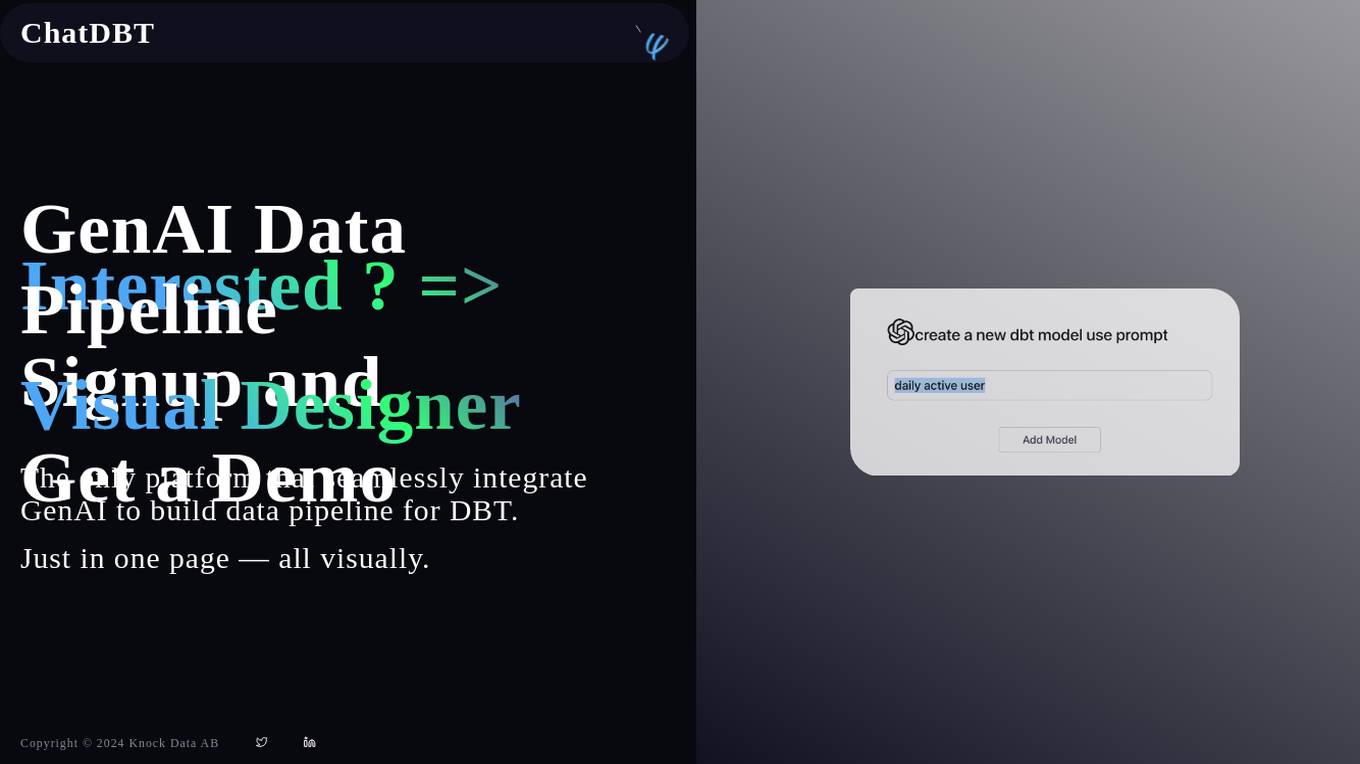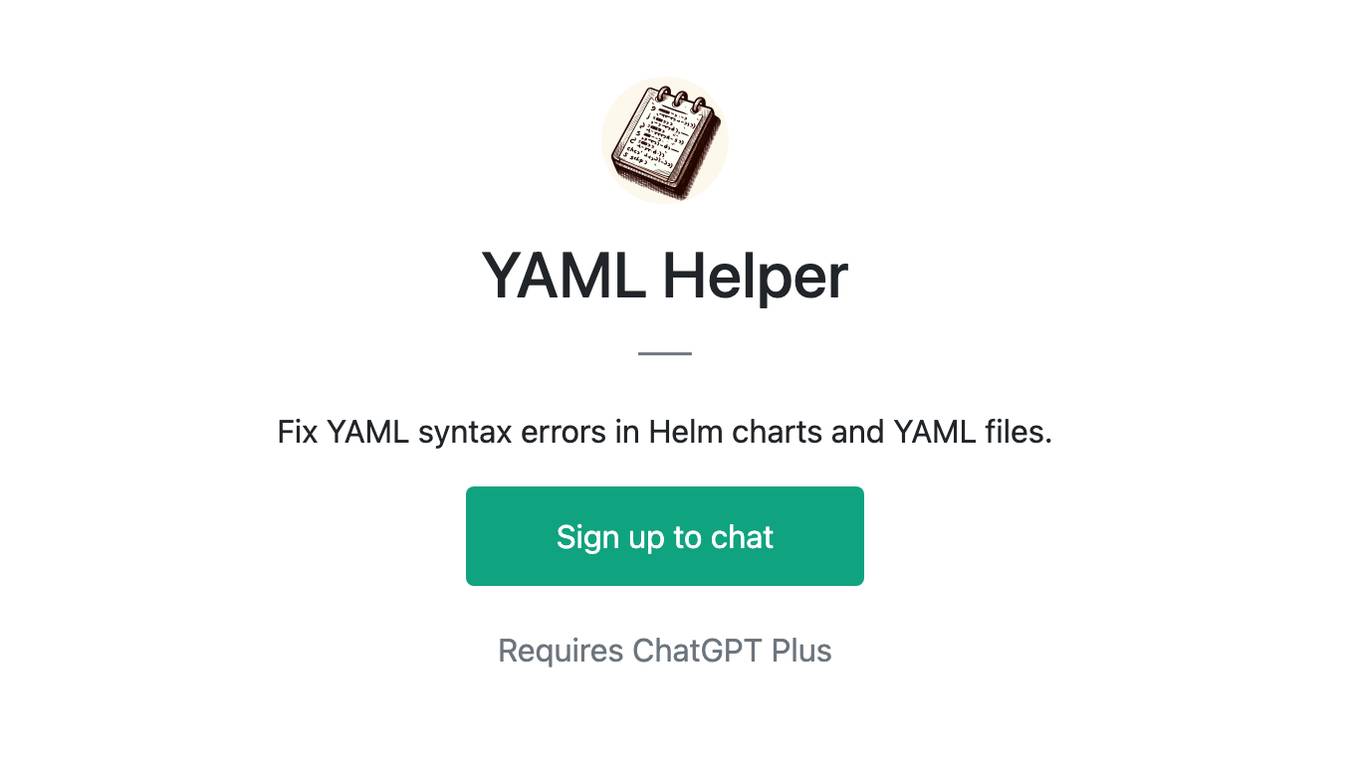Best AI tools for< Lint Dbt Code >
1 - AI tool Sites

ChatDBT
ChatDBT is a DBT designer with prompting that helps you write better DBT code. It provides a user-friendly interface that makes it easy to create and edit DBT models, and it includes a number of features that can help you improve the quality of your code.
site
: 0
0 - Open Source AI Tools
No tools available
